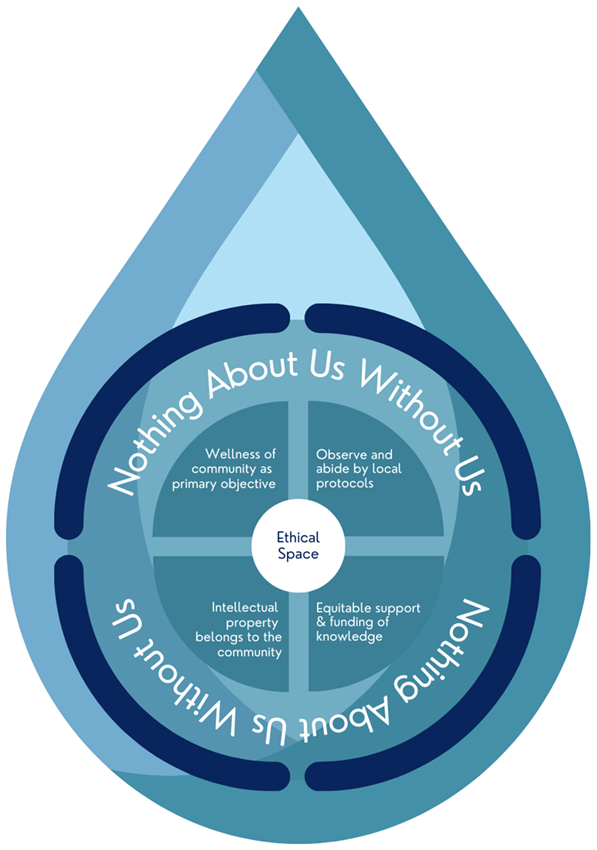
Everyone Together
Global Water Futures Mistawasis Nêhiyawak Water Gathering Statement
For the first time in Canada, Indigenous water experts and Knowledge Keepers have created a protocol that puts co-generation of research at the forefront, in an attempt to create a better water future for everyone.
The Everyone Together: Water Gathering Statement was created by a group of 22 participants representing 14 different First Nation and Inuit communities and organizations. The protocol outlined in the document was initially discussed over three days in April 2023 during the University of Saskatchewan (Usask)-led Global Water Futures (GWF) - Mistawasis Nêhiyawak Water Gathering, and is now available publicly.
"We envision a future where research is led by Indigenous communities and is responsive to their needs, centres Indigenous Knowledge, and helps to grow healthy waters, relationships, and communities."
- Anthony Blair Dreaver Johnston, Knowledge Keeper with Mistawasis Nêhiyawak and member, GWF Indigenous Engagement Committee
In order to achieve this vision, when conducting research with Indigenous communities in Canada:
1. Wellness of community is a primary objective
- It is not sufficient to just ‘do no harm’ but do better and do good for the people
- Community priorities will be integrated into research projects from the start
2. Observe and abide by local protocols
- Every First Nation, Inuit, and Métis community is different; you will not impose a ‘one size fits all’ approach
- Guidance of Elders will be respected at all times throughout the research process
- Spirituality will be acknowledged and recognized as sacred
- Abide by seasonal harvesting and ceremonial calendar
3. Equity is needed in supporting and funding knowledge
- Centre Indigenous Knowledge in research Western science will accommodate our ways of knowing and being
- Equal funding distribution
- Frame the work balance evenly
- Provide accreditation of local experts
- Build university infrastructure to support, enhance, and elevate Traditional Knowledge (e.g., accredit monitors, nominate individuals for honorary doctorates, provide resources and funding beyond honoraria)
- Engage in outreach with schools for training and capacity building to ensure sustainability and youth development
4. Intellectual property will remain with the community and they will determine what can be shared
- Communities will nominate Knowledge Holders and community youth (individuals under 30) and not the researchers
- Knowledge will be visual and culturally relevant; western science charts and graphs could be verbally or visually presented
- Create an ethical space within which different knowledge systems are acknowledged and respected and research findings are established (analysis)
- Encompasses all our knowledge
- Research will be flexible with timelines
- Pair community members for research and share knowledge on research instruments
Acknowledgements
- Mistawasis Lands and Resources Department
- Mistawasis Nêhiyawak High School


